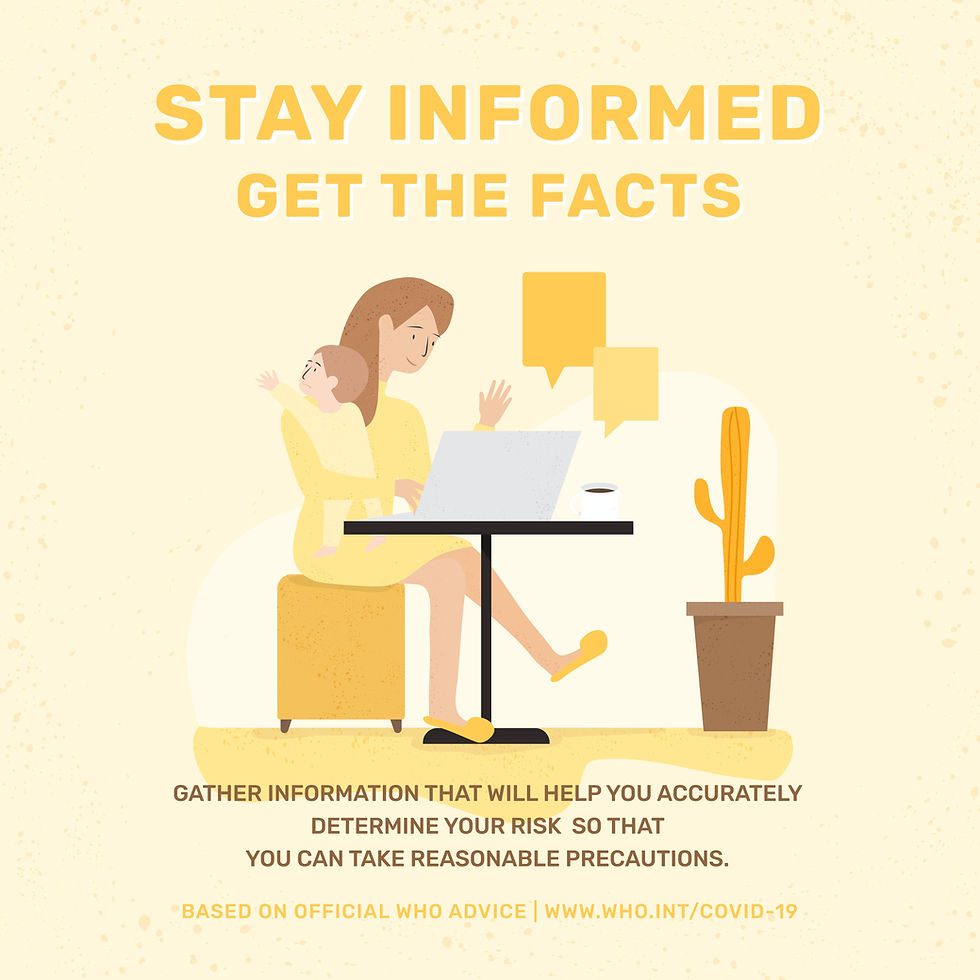Busting the Myths
- AM Taylor

- Jun 14, 2020
- 2 min read
by Annita M. Taylor, MBA, MSN, APRN, ANP

There is a lot of misinformation born from not knowing about COVID-19. The World Health Organization (the W.H.O)addressed some of these myths to bring people into the light about the virus. There are so many myths surrounding the coronavirus. These myths are formed, because people are in a state of panic and do not know what is happening.
To help ease some of the anxiety surrounding the virus, the W.H.O took to busting some of the myths that are circulating. Here are some of the most widespread myths:
Myth:
5G mobile networks are causing the spread of COVID-19.
Busted:
Viruses cannot travel on radio waves! COVID-19 is spreading in many countries that do not have access to 5G mobile networks.
Myth:
Sun exposure and hot climates can prevent the spread of the virus.
Busted:
You can catch COVID-19, no matter how sunny or hot the weather is. Hot climate countries have reported cases of COVID-19, just like colder ones. As the weather is getting hotter in NY, there are still new reported cases.
Myth:
Once you get the coronavirus, you become a carrier for life.
Busted:
Just like most other virus, you can fully recover from and eliminate the virus from your body. You have to treat the symptoms and seek medical care. As antibody testing is becoming available, new studies are being conducted regarding immunity. This is an ongoing process.
Myth:
Adding hot peppers to your meal can prevent COVID-19 from infecting you.
Busted:
Though it may taste good, adding heat through peppers to your food in no way makes you resistant to the virus.
Myth:
Being able to hold your breath for 10 seconds without getting uncomfortable means that you do not have the virus.
Busted:
Trying to confirm if you have the virus through a breathing test is dangerous and irresponsible. The only way to test for the virus is through a proper lab test.
Myth:
Drinking alcohol protects you against the virus.
Busted:
This is absolutely false; in fact, excessive and frequent drinking can lead to many other health problems.
These are just a few of the dozens of myths that exist about the virus. Conducting your research by reading reputable studies and articles, watching the daily updates provided by your state and region, and speaking with your medical provider are ways to get you to get answers. We can best protect ourselves and our loved ones by staying well-informed and not falling prey to false information.
Stay safe, informed, and healthy!
NP, A.M. Taylor
References
The World Health Organization (2020). Coronavirus. Retrieved May 5, 2020 from https://www.who.int/health-topics/coronavirus#tab=tab_1




Comments